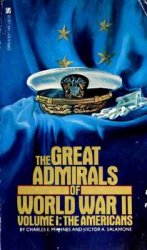Most of the arguments for extending American influence in the Pacific applied more strongly to Central and South America, where the United States had much larger economic interests and where the strategic importance of the region was clear. Furthermore, the Monroe Doctrine had long conditioned the American people to the idea of acting to protect national interests in the Western Hemisphere.
As early as 1869 President Grant had come out for an American-owned canal across the isthmus of Panama, in spite of the fact that the United States had agreed in the Clayton-Bulwer Treaty with Great Britain (1850) that neither nation would “obtain or maintain for itself any exclusive control” over an inter-oceanic canal. In 1880, when the French engineer Ferdinand de Lesseps organized a company to build a canal across the isthmus, President Hayes announced that the United States would not permit a European power to control such a waterway. “The policy of the country is a canal under American control,” he announced, another blithe disregard of the Clayton-Bulwer agreement.
When Cleveland returned to power in 1893, the possibility of trouble in Latin America seemed remote, for he had always opposed imperialistic ventures. Yet scarcely two years later the United States was again on the verge of war in South America as a result of a crisis in Venezuela, and before this issue was settled Cleveland had made the most powerful claim to American hegemony in the hemisphere ever uttered. The tangled borderland between Venezuela and British Guiana had long been in dispute, Venezuela demanding more of the region than it was entitled to and Great Britain making exaggerated claims and imperiously refusing to submit the question to arbitration. What made a crisis of the controversy was the political situation in the United States. With his party rapidly deserting him because of his stand on the silver question, and with the election of 1896 approaching, President Cleveland desperately needed a popular issue.
There was considerable latent anti-British feeling in the United States. By taking the Venezuelan side in the boundary dispute, Cleveland would be defending a weak neighbor against a great power, a position certain to evoke a popular response. “Turn this Venezuela question up or down, North, South, East or West, and it is a winner” one Democrat advised the president.
Cleveland did not resist the temptation to intervene. In July 1895 he ordered Secretary of State Richard Olney to send a near ultimatum to the British. By occupying the disputed territory, Olney insisted, Great Britain was invading Venezuela and violating the Monroe Doctrine. Quite gratuitously, he went on to boast, “Today the United States is practically sovereign on this continent, and its fiat is law upon the subjects to which it confines its interposition.” Unless Great Britain responded promptly by agreeing to arbitration, the president would call the question to the attention of Congress.
The note threatened war, but the British ignored it for months. They did not take the United States seriously as a world power, and with reason, for the
American navy, although expanding, could not hope to stand up against the British, who had fifty battleships, twenty-five armored cruisers, and many smaller vessels. When Lord Salisbury, the prime minister and foreign secretary, finally replied, he rejected outright the argument that the Monroe Doctrine had any status under international law and refused to arbitrate what he called the “exaggerated pretensions” ofthe Venezuelans.
If Olney’s note had been belligerent, this reply was supercilious. Cleveland was furious. On December 17, 1895, he asked Congress for authority to appoint an American commission to determine the correct line between British Guiana and Venezuela. When that had been done, he added, the United States should “resist by every means in its power” the appropriation by Great Britain of any territory “we have determined of right belongs to Venezuela.” Congress responded at once, unanimously appropriating $100,000 for the boundary commission. Popular approval was almost universal.
In Great Britain government and people suddenly awoke to the seriousness of the situation. No one wanted a war with the United States over a remote patch oftropical real estate. In Europe, Britain was concerned about German economic competition and the increased military power of that nation. In addition Canada would be terribly vulnerable to American attack in the event of war. The immense potential strength of the United States could no longer be ignored. Why make an enemy of a nation of 70 million, already the richest industrial power in the world? To fight with the United States, the British colonial secretary realized, “would be an absurdity as well as a crime.”
Great Britain agreed to arbitrate the boundary. The war scare subsided; soon Olney was talking about “our inborn and instinctive English sympathies” and offering “to stand side by side and shoulder to shoulder with England in. . . the defense of human rights.” When the boundary tribunal awarded nearly all the disputed region to Great Britain, whatever ill feeling the surrender may have occasioned in that country faded away. Instead of leading to war, the affair marked the beginning of an era of Anglo-American friendship. It had the unfortunate effect, however, of adding to the long-held American conviction that the nation could get what it wanted in international affairs by threat and bluster—a dangerous illusion.




 World History
World History









